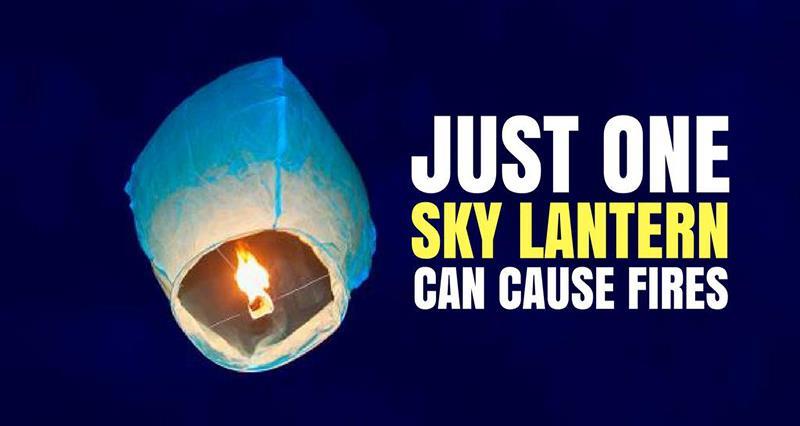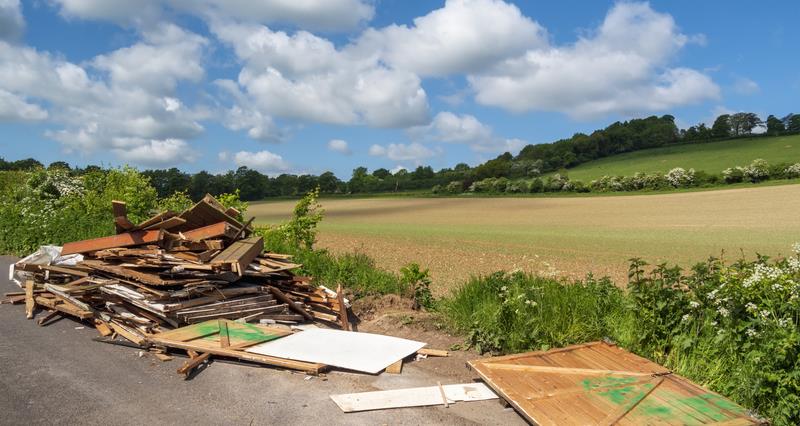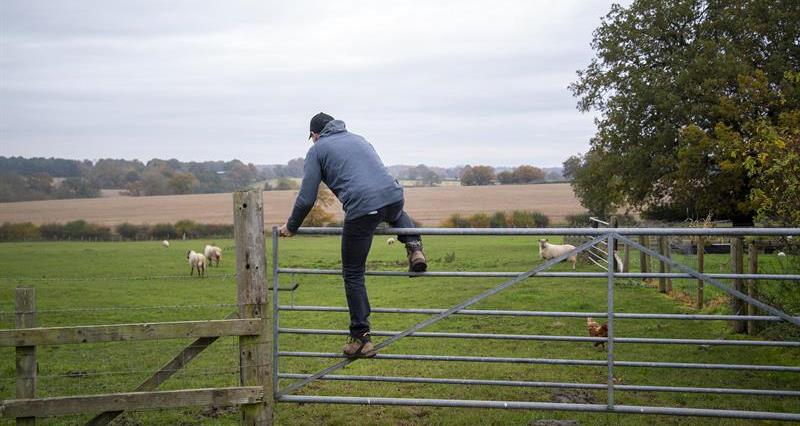We've joined forces with farming, environment, animal and fire organisations to call for a national ban of sky lanterns as part of a long-running campaign to ground them for good.
Since May 2022, more than 110,000 members of the public have signed our petition calling on the government to follow the lead of hundreds of local councils and introduce an outright ban. Parliament recognises 100,000 signatures as the most significant milestone a petition can reach.
We wrote to then Environment Minister Trudy Harrison MP to ask for a national ban on sky lanterns. She responded to inform us that Defra had commissioned research into the harms caused by sky lanterns.
In November 2023, we wrote to Defra again, calling for the research findings to be shared given the ongoing support from the public calling for a ban.
Campaigning nationally and locally
Every year up to 200,000 sky lanterns are released in the UK and farmers continue to report the threat they are posing to their farm businesses.
These floating flames are highly dangerous and can start wildfires, kill livestock, destroy crops and set homes and buildings alight.
Germany, Austria and Brazil are among the countries that have already implemented a total ban.
“I urge farmers and growers to add their name and help ground sky lanterns for good.”
NFU Deputy President David Exwood
Sign the petition
Following NFU campaigning which mobilised thousands of members of the public to email their council, 200 councils out of 333 across England and Wales have voluntarily banned sky lanterns. But this only covers the land they own.
Now the NFU has launched a petition so that NFU members, farmers and the public can show their support for a total ban in England and Wales.
It follows a letter to Environment Minister Rebecca Pow which detailed how other countries considered the release of sky lanterns to be an environmental crime due to the harm they cause animals, habitats and the countryside.
Real danger to farms
NFU Deputy President David Exwood said: “Sky lanterns continue to be a real danger to many of us living and working in the countryside. They can cause serious injury to livestock if they are eaten, particularly with so many calves and lambs in the fields in the spring and summer months.
“As the weather gets and drier the potential for damage to crops and buildings is also increased.
“By launching this petition and galvanising the support of the British public, we can show the UK Government, and the Defra minister with responsibility, that there is widespread support for a total ban of sky lanterns in England and Wales.
“I urge farmers and growers to add their name and help ground sky lanterns for good.”
Our campaigning work on sky lanterns so far
The NFU calls for urgency from Defra to publish the research findings on the impacts of sky lanterns.
Our petition reaches more than 100,000 signatures as more members of the public become concerned with the harmful impact of sky lanterns. 100,000 signatures is recognised by Parliament as a significant milestone.
We wrote to Environment Minister Trudy Harrison MP to ask for a national ban on sky lanterns. In a positive step forward, Defra has now commissioned further research into sky lanterns and their impact to clarify the case for a total ban. NFU members – read the letter in full.
Our petition reaches more than 50,000 signatures as members of the public call on the government to follow the lead of 185 local councils and introduce a ban.
NFU launches petition calling for a total ban of sky lanterns in England and Wales.
Coalition meets Jo Churchill MP, Environment Minister for Defra. She commits to commission research on the risks of sky lanterns and disposable barbecues.
Coalition of organisations writes to Rebecca Pow MP, Under Secretary of State for Defra, calling for a national ban.
NFU launches campaign to urge people to email their council to ban sky lanterns on land it owns. To date 174 councils out of 333 have banned them in England and Wales.
Labour MP Ruth George introduces Ten Minute Rule Bill to prohibit the use of sky lanterns in England. It did not progress.


